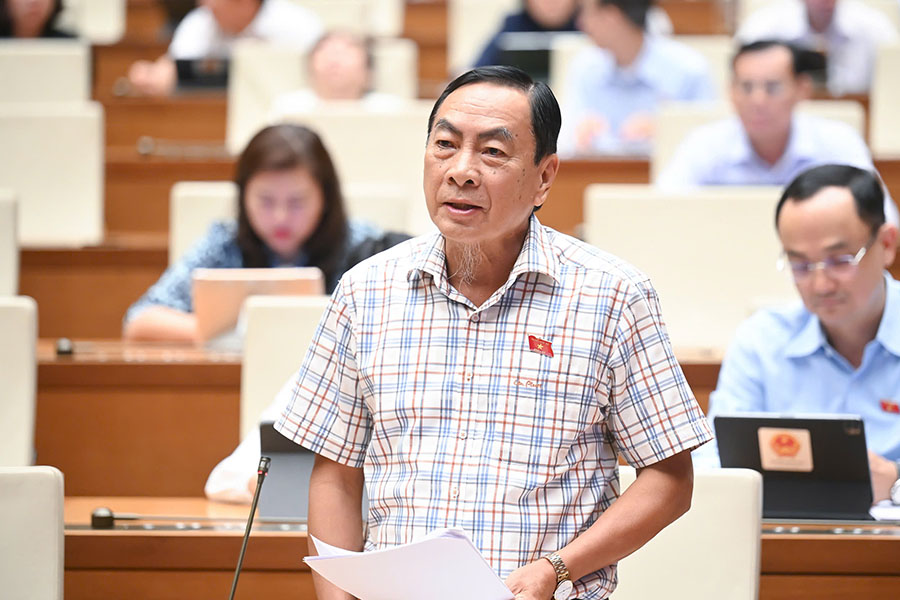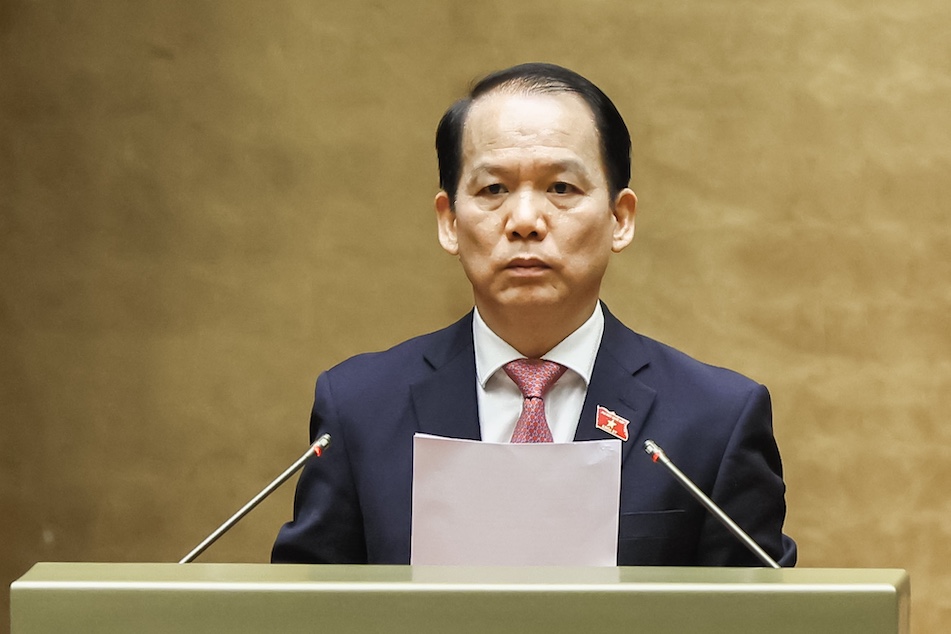On the afternoon of June 13, the National Assembly discussed the draft Resolution amending and supplementing a number of articles of the 2013 Constitution.
Article 2 of the draft Resolution stipulates that "The Standing Committee of the People's Councils of provinces and centrally run cities appoints the Chairman and Vice Chairman of the People's Committee of the lower-level administrative unit formed after the reorganization".
Regarding this content, National Assembly Delegate Pham Van Hoa (Dong Thap Delegation) suggested that the drafting agency consider reconsidering.

The Hoa delegate said that the appointment of the Chairman and Vice Chairman of the People's Committee of the commune should be assigned to the Chairman of the Provincial People's Committee.
"In addition, during the implementation process, if the Chairman and Vice Chairman of the People's Committee at the commune level violate discipline or resign, the Standing Committee of the Provincial People's Council will decide to dismiss or the Chairman of the Provincial People's Committee will decide. This issue should also be clearly regulated," said delegate Hoa.
Presenting a report on receiving and explaining the opinions of National Assembly deputies, Chairman of the National Assembly's Committee on Law and Justice Hoang Thanh Tung - Standing member of the Committee on drafting a number of articles of the Constitution said that regarding the transitional regulations on appointing leadership positions of People's Councils, People's Committees at the provincial and commune levels after implementing the arrangement, according to Mr. Hoang Thanh Tung, the Committee has reported specifically the reasons for applying this mechanism.
Accordingly, the mechanism for appointing leadership positions of People's Councils and People's Committees in administrative units to carry out the arrangement is due to the very special nature of the arrangement of administrative units in 2025.
In addition to the very large scale, national nature of merging provincial-level administrative units and rearranging commune-level administrative units, and also combining the implementation of the Party's major policy on not organizing district-level administrative units, agencies under district-level local government will end their operations at the same time as the rearrangement of provincial and commune-level administrative units.
In the context of such a large change and fluctuation in the organizational apparatus, the remaining time of the People's Council term is only very short (about 9 months), People's Council delegates in administrative units formed after the reorganization gathered from many previous administrative units have difficulty in accurately recognizing and evaluating the capacity of the staff to elect leadership positions in newly formed administrative units after the reorganization; not to mention the possible impacts and impacts of local psychology.

In addition, to meet the requirements for arranging and assigning cadres, especially cadres working at the provincial and district levels to work at the commune level after arranging and exploiting the maximum available human resources, the application of the designation mechanism for those holding leadership positions in People's Council and People's Committee agencies at units implementing the arrangement is necessary and meets practical requirements.
After the election of People's Council delegates at all levels for the 2026 - 2031 term and in the following years, continue to conduct normal personnel elections in accordance with current regulations, the People's Council will elect the positions of the People's Council and the People's Committee.
At the same time, in order for agencies and organizations to be able to implement immediately without having to wait for guidance documents, the Committee has reviewed and revised the provisions on transitional provisions in Clause 3, Article 2 of the draft Resolution to fully and promptly institutionalize Conclusion No. 150-KL/TW dated April 14, 2025 of the Politburo without assigning detailed regulations to the Law on Organization of Local Government.











